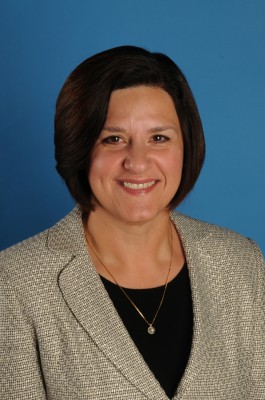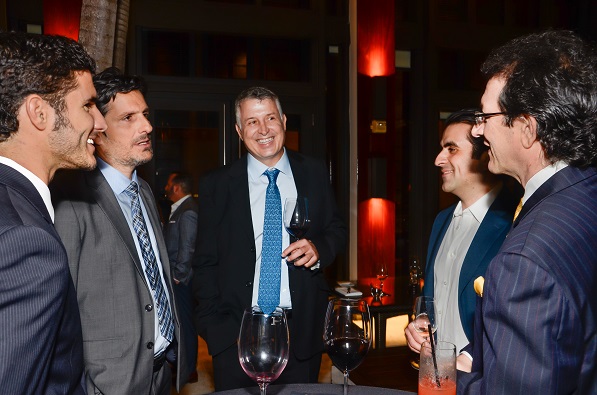
What has been your biggest strength in the business world?
It’s the flexibility of thinking that comes from my legal training. Lawyers are trained to be able to argue both sides of a situation in order to be able to assess the strengths and weaknesses of their arguments. That background has been invaluable even though I don’t work as a lawyer for Allstate. It’s all about the ability to see multiple sides of a problem, analyze it, engage in fact-based decision-making, and then create a consensus for moving forward. In addition, strong written and verbal-communication skills are required of attorneys. This makes for a powerful combination of strengths.
What key trends define the industry you work in now?
The financial services business is facing tremendous challenges that will create opportunities for those companies that successfully navigate them. I work in the life insurance and retirement area of Allstate—specifically, I lead Allstate’s retail broker dealer, which provides mutual funds and variable annuities to our middle-market customers through the agents and financial specialists that are registered to sell securities products. The key trends impacting this business are the large, underserved, and underinsured middle market, increasing life expectancies combined with insufficient retirement savings, and continued high levels of financial illiteracy in the United States. Those seem like huge obstacles, but they represent incredible opportunity for a company like Allstate. We are focused on serving the middle market so we strive to make our insurance and financial products accessible to those consumers. The economic trends creating challenges for our business are the prolonged, historically low-interest-rate environment, which puts tremendous pressure on our life-insurance business, and stock-market volatility, which has caused some consumers to lose confidence in their ability to invest for the future.
What advice do you wish you had received when you were first starting out in your career?
Once you get too comfortable in your job, it’s time to move on to something new. When I was in my second role after finishing law school, I loved what I was doing, but I probably should have changed roles after five years, instead of 10. After the first five years in that role, I wasn’t learning and developing as much as I would have been in a new and more challenging job.
What is the most significant obstacle facing Latinos hoping to succeed in business today?
Preconceived notions about Latinos don’t begin to address the incredible diversity that exists among us. We don’t all look the same, we don’t all speak Spanish, we’re not all from Mexico, we’re not all illegal immigrants, etc., etc. However, those stereotypes have an impact in and outside of the business world. Companies are just beginning to appreciate the demographic changes taking place in the United States and the growing economic power of Latinos. As a result, many companies haven’t fully realized the benefit Latino leaders can bring to the table—and not just as leaders of diversity initiatives or Hispanic marketing efforts. Latino leaders can contribute to every aspect of a company’s operations. I’m fortunate to work at Allstate, where inclusive diversity is one of our core values. Allstate employees feel comfortable bringing their whole selves to work and the company benefits from having its work informed by diverse perspectives.
How does your heritage and upbringing influence you as an executive?
My parents, grandparents, and I came to the United States from Cuba when I was four years old. We literally left everything behind and started a new life in a new country where we didn’t speak the language. They all got jobs. My dad worked two jobs for quite some time, and my grandparents went back to work even though they had already retired in Cuba. My family’s examples and advice formed an essential part of who I am as an executive, wife, mother, and member of my community. Most of what I have achieved was made possible by my family’s strong emphasis on family and education. I certainly learned the value of hard work and living a life of honesty and integrity.
What key factors allowed you to reach this level of success?
I was raised to be very achievement-oriented. My family taught me to never give up and keep striving toward my goals. My grandfather had a saying that we all heard over and over: “Para atras ni para coger impulso.” It roughly means, “Never step back even to wind up.” I had unbelievable support from my parents, who thought that I could do whatever I wanted as long as I worked hard and got good grades. When I started law school, and in the early years of my career, my husband was always a strong supporter of my career aspirations, as I was of his. Even when I was coping with the conflicting demands of work and raising our boys, we were always strong partners in figuring out how to juggle it all while emphasizing values that are really important to our family, such as education and hard work.

